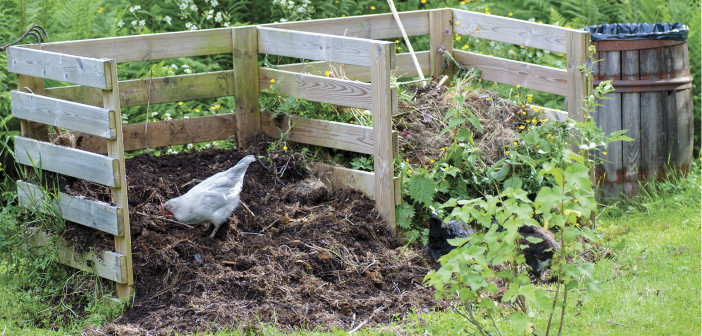One of the best ways to keep your garden soil healthy and plants growing strong is to use compost. Use it as fertilizer for your flower or vegetable beds, your houseplants, new planting areas or around trees. One of the best ways to use compost is to make your own. This guide will give beginners a good start!
What is compost?
Compost is an organic material produced from heaps of decomposed plant parts – leaves, food waste – and the manure of plant-eating animals. With the help of soil-dwelling microbes, the decomposed materials generate nutrients that plants need for healthy growth. Basically, it’s nature’s way of recycling.
How does compost help the garden?
Aside from providing nutrients to plants, compost also improves the soil structure by producing rich humus (upper soil layer) that nurtures it and increase its ability to retain water. It also helps moderate the soil’s pH level.
Most importantly, compost feeds soil organisms that are essential for plant health and continual soil improvement. It includes fungi, protozoa, nematodes and earthworms that depend on organic materials to supply their daily food.
What can I compost?
Almost anything made from organic material can be made into compost; from broccoli stalks and citrus rinds to coffee grounds and hedge clippings. The important thing is that you find a balance of carbon and nitrogen. Composting occurs fastest when about 30 parts of carbon are used to one part of nitrogen.
Sources of Carbon and Nitrogen
Carbon sources include: straw, cornstalks, pea and bean vines, autumn leaves, hay, wood shavings and sawdust. Nitrogen is found in any type of fresh or wilted plant matter, grass clippings and non-pollinated weeds, kitchen scraps, seaweed and kelp.
For a better mix, make sure to blend in organic matter that decomposes at both quick and slow rates. That will keep it in better proportions and texture.
What NOT to compost:
Do not compost diseased plants, pet manure, lawn clippings that are treated with herbicides or meat and dairy products.
What tools do I need for composting?
Composting is a project that requires the right tools! The short list includes a compost thermometer, six-tine manure fork, a lawnmower and a watering hose.
Build your compost bin!
There are several types of bins you can make for your compost: the wooden compost bin, the free-cycle compost bin, the straw bale hot bin, and others. All of these will create a nutrient-rich compost. Although a compost bin isn’t required, it makes the job a lot faster and easier. You simply need a space for a pile that is at least three feet square.
For more details and information on how to get started making your own compost, visit compostfoundation.org.
Compost transforms garden and other vegetable waste into a dark, rich, productive soil additive referred to by gardeners as “Black Gold.”














